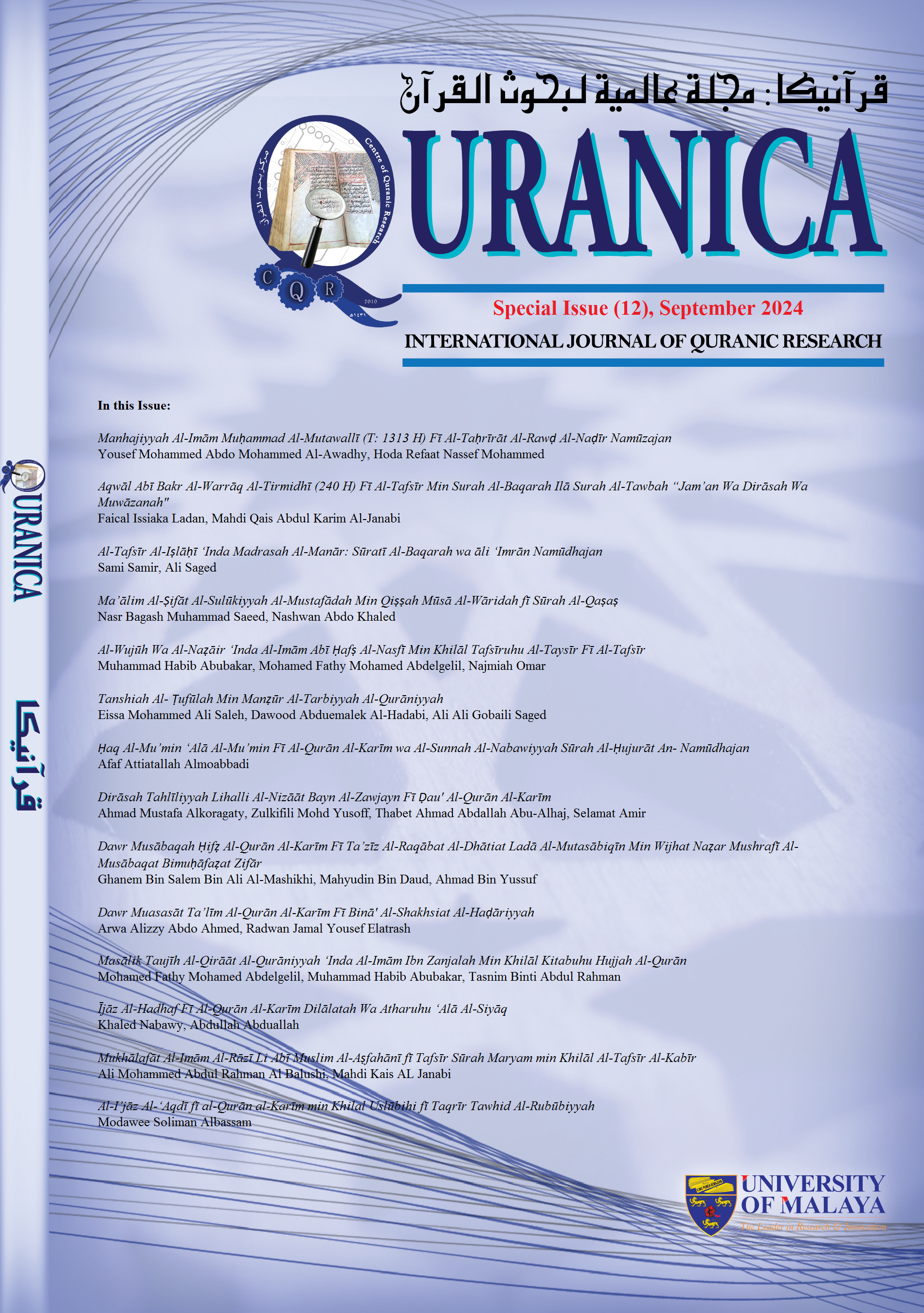Ījāz Al-Hadhaf Fī Al-Qurān Al-Karīm Dilālatah Wa Atharuhu ‘Alā Al-Siyāq
DOI:
https://doi.org/10.22452/quranica.vol16no2.18Keywords:
Briefness, Deletion, Significance, ImpactAbstract
The title of this thesis is (Briefing of the deletion in the Holy Qur’an, its meaning and effect).This research starting with defining the terms, then explaining the types of brevity in the Noble Qur’an, then the discussion, and finally the results, then the recommendations. Both methods were used in this study: inductive method; Based on tracking, extracting, collecting, and then studying them, as well as the descriptive analytical method, in order to obtain scientific results, and then interpret them in an objective manner, in line with the actual data of the phenomenon.This research aims to show the effects of brevity in the exegetical meaning of the Makkian surah as well as explaining the effect of brevity in the strength of the meanings of words, with the manifestations of the Qur’anic miracle, and its impact on the explanatory ,The importance of this research lies in the fact that the purpose of brevity in the Holy Qur’an is not only linguistic significance; Rather, the explanatory significance, and its impact on the forensic sciences, and this aspect needs attention. This research reached a set of results, the most important of which are briefing has a significant impact on the exegetical meaning of the Holy Qur’an, as it is not only a matter of rhetorical taste, but also has an impact on revealing meanings, rulings, and judgment as well as the brevity in the Noble Qur’an is miraculous in Islamic legislation, establishing proofs, arguments and evidence for the features of monotheism, and refuting the ambiguities and falsehoods. The researcher recommended a set of recommendations, the most important of which are paying attention to the impact of rhetorical methods on the explanatory meanings of Quranic verses, also to highlight the efforts of the commentators in explaining the impact of rhetorical methods on the explanatory meanings.
Downloads
Downloads
Published
Issue
Section
License
Disclaimer
QURANICA makes every effort to ensure the accuracy of all its contents. However, opinions, discussions, views and recommendations are expressed in this journal do not necessarily reflect the official policy of QURANICA or views of its editors or publishers. Therefore, QURANICA and its publishers will not be liable for any controversy may be arisen. The journal reserves the right, at its sole discretion, to change its terms and conditions of publications.
Copyright
It is a condition of publication that manuscript submitted to the journal have not been published, accepted for publication, nor simultaneously submitted for publication elsewhere. By submitting a manuscript, the author(s) agrees that copyright for the article is transferred to the publisher, if and when the manuscript is accepted for publication.






